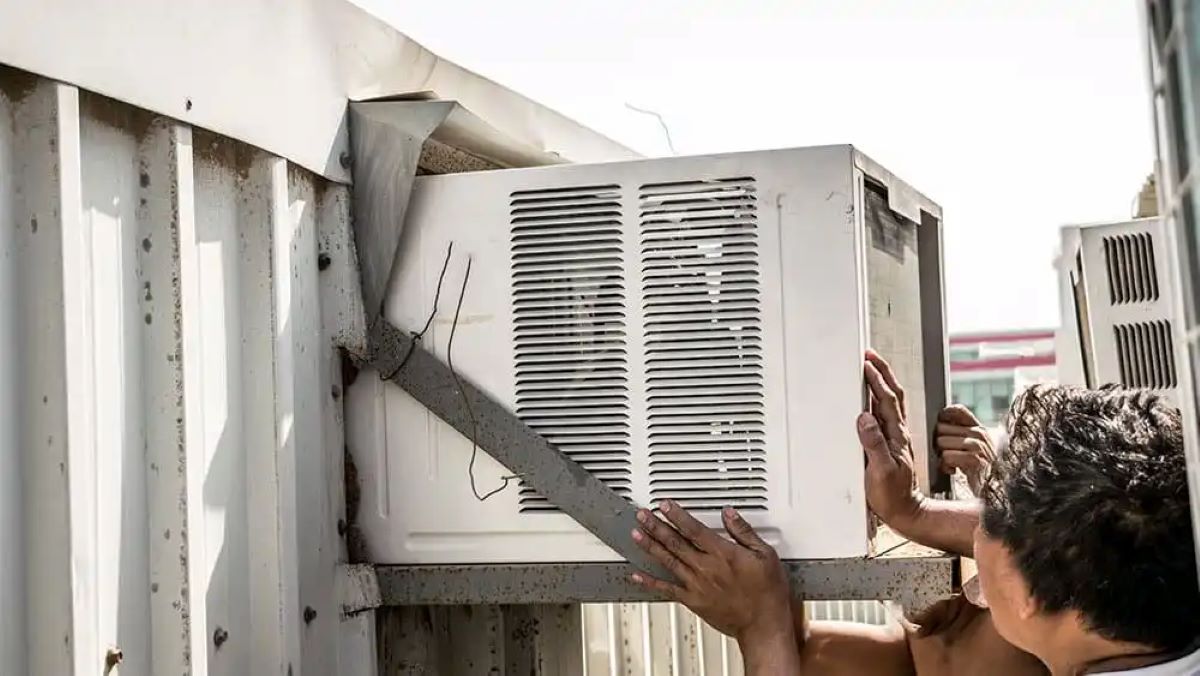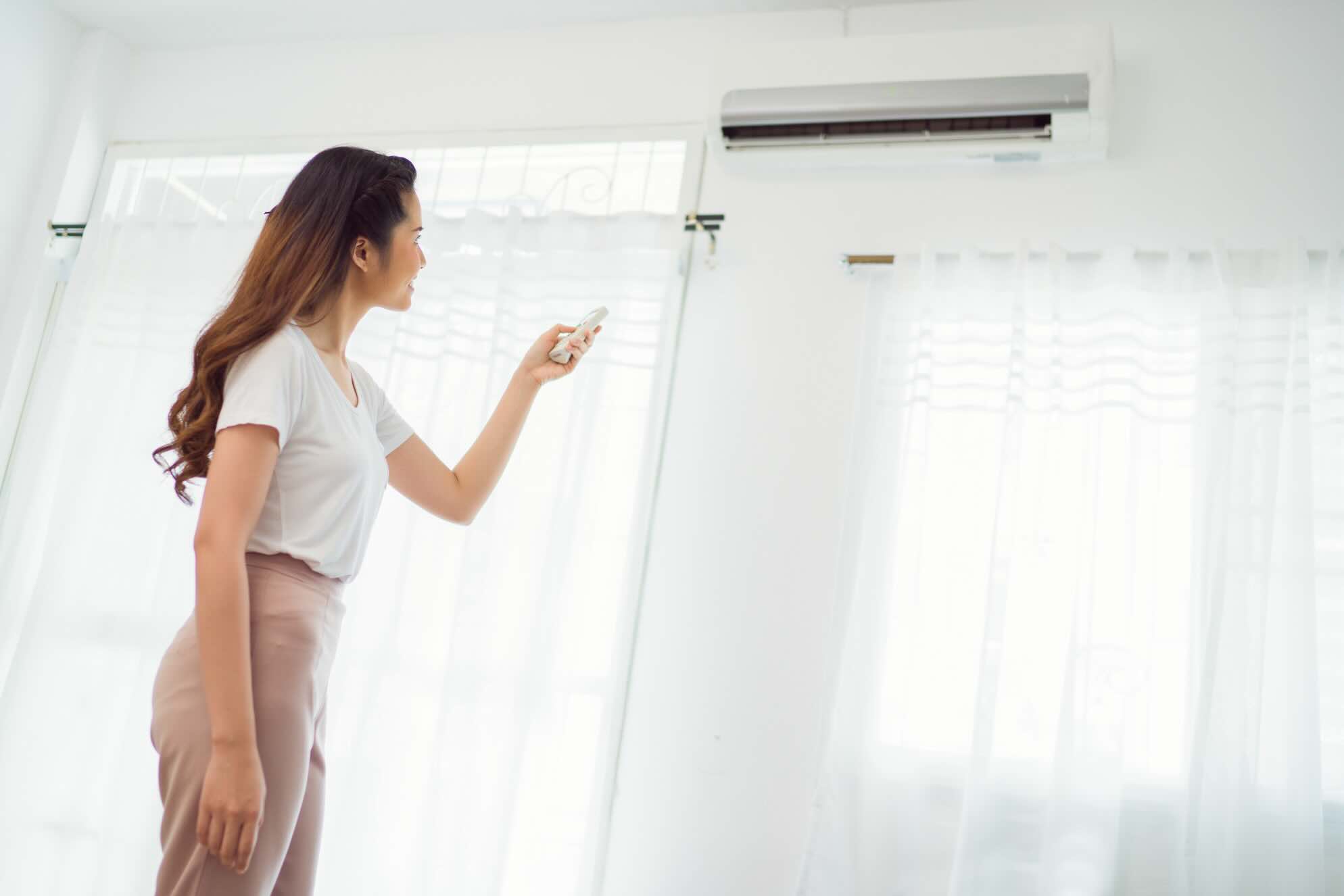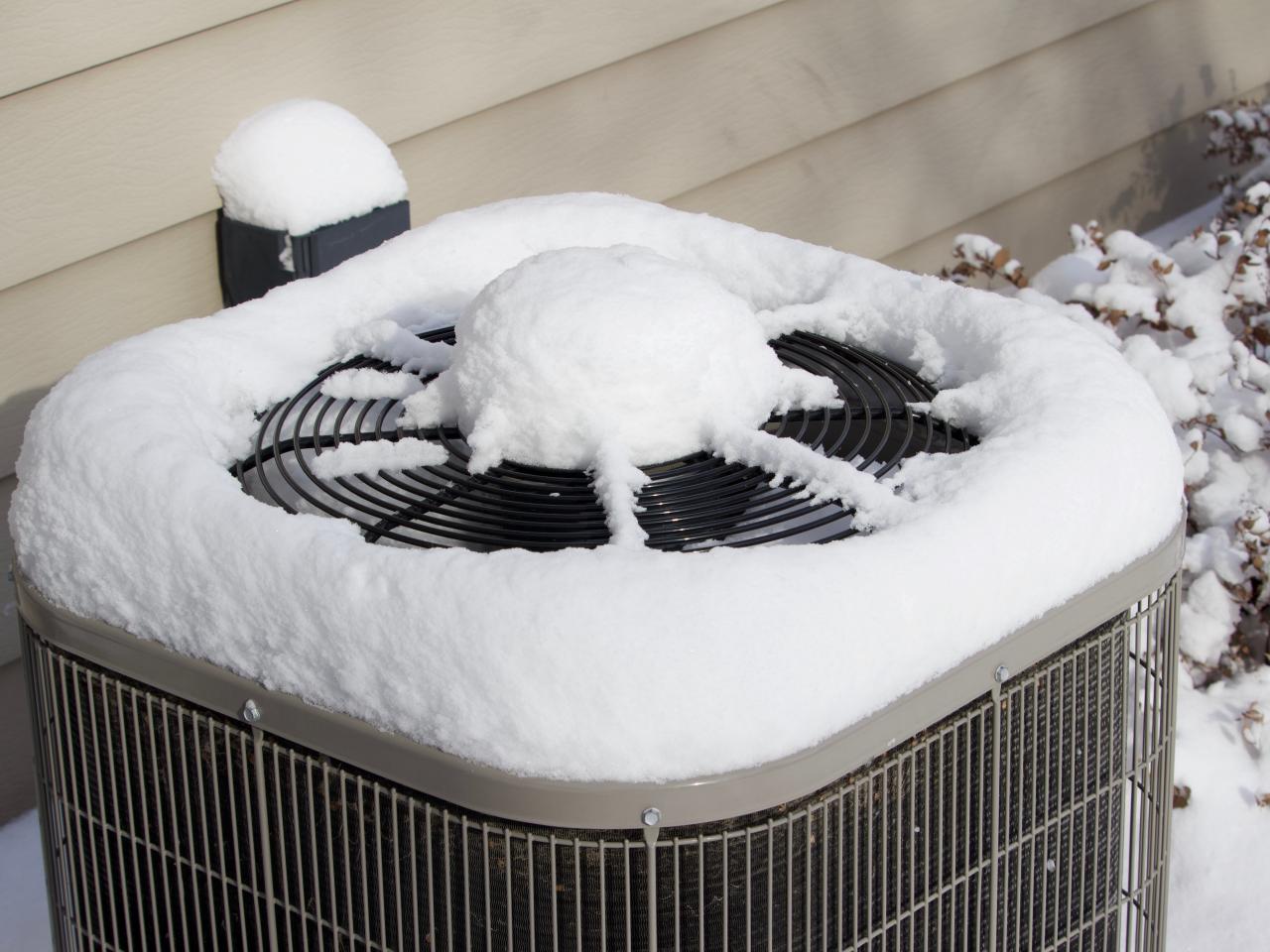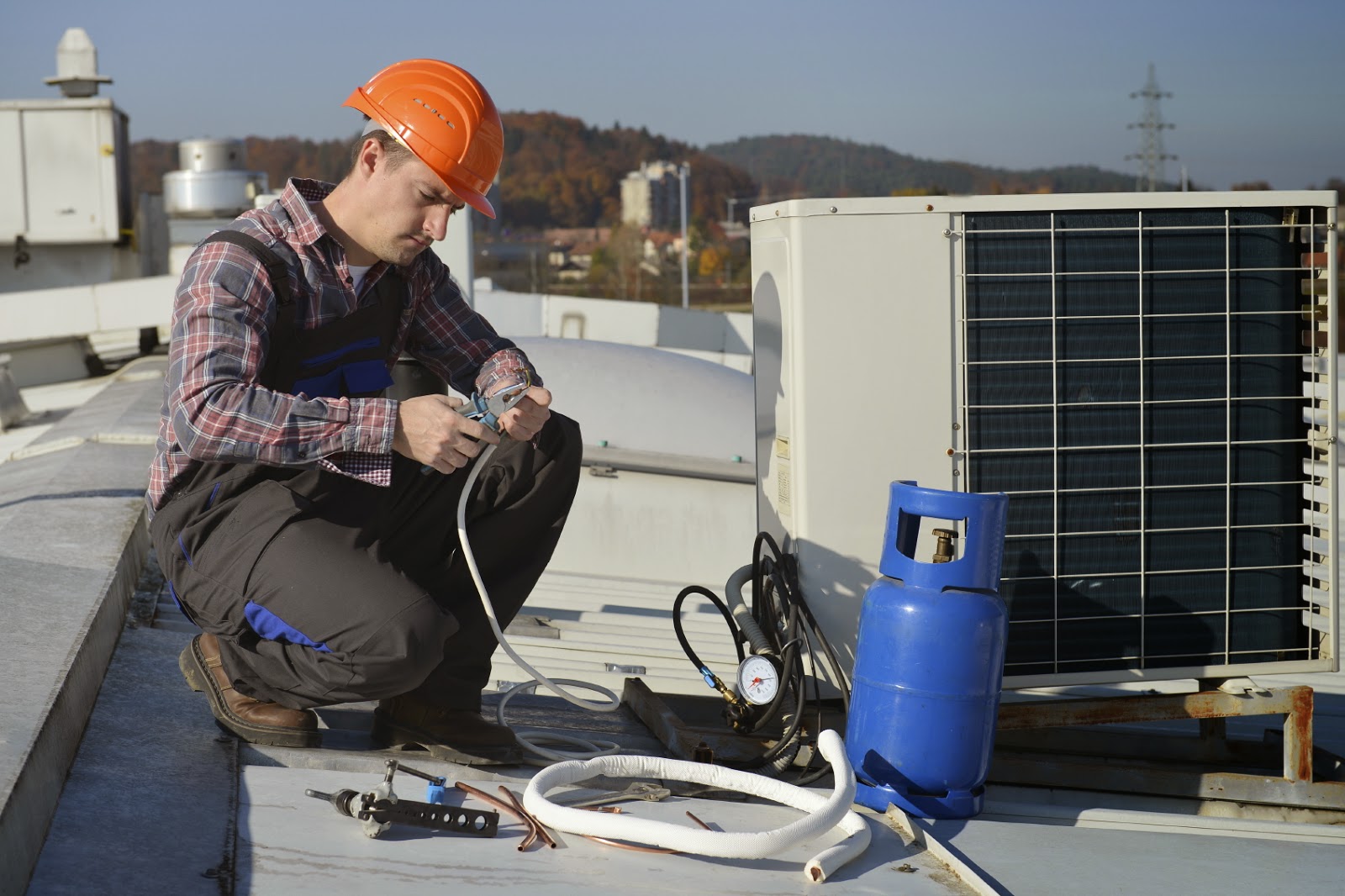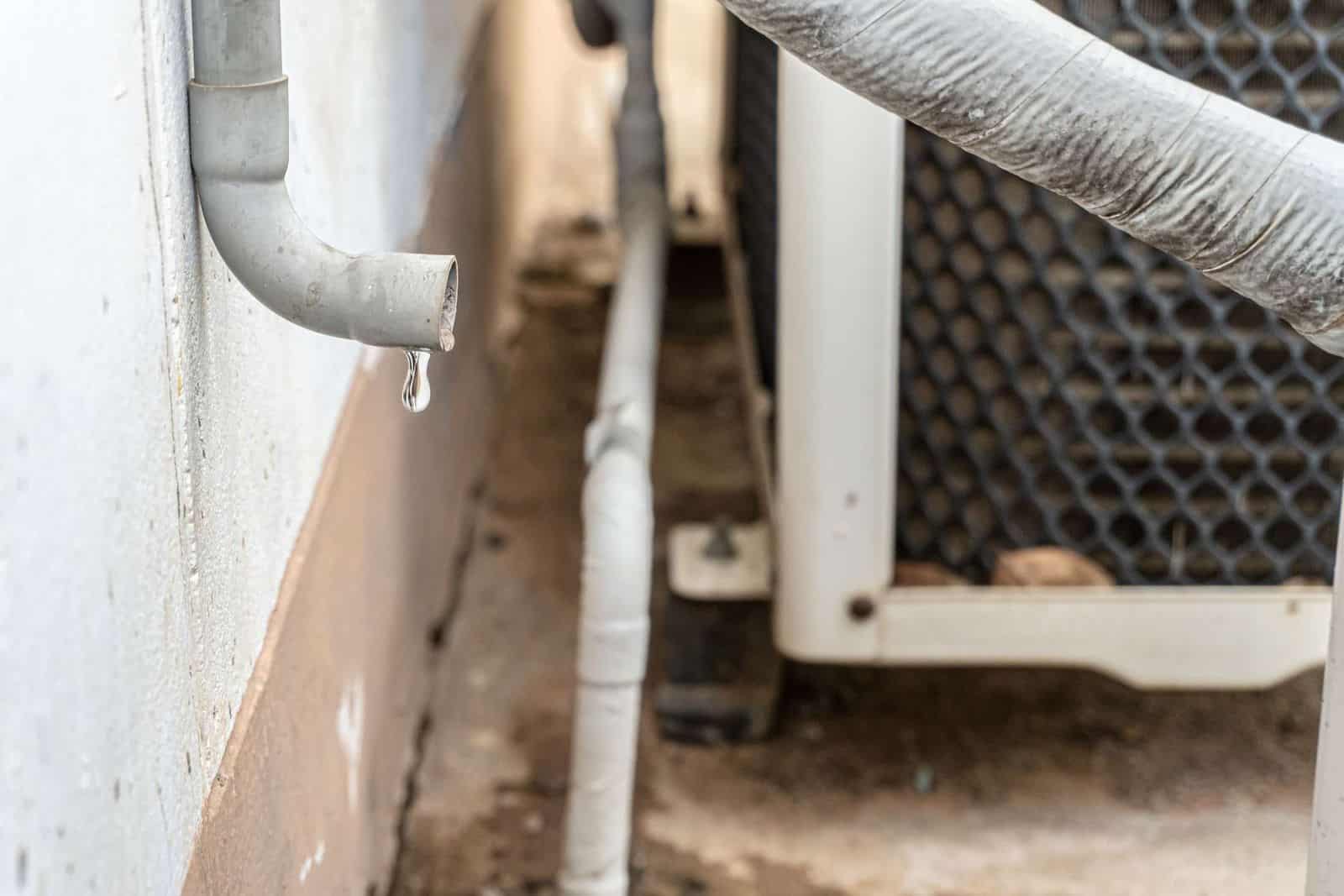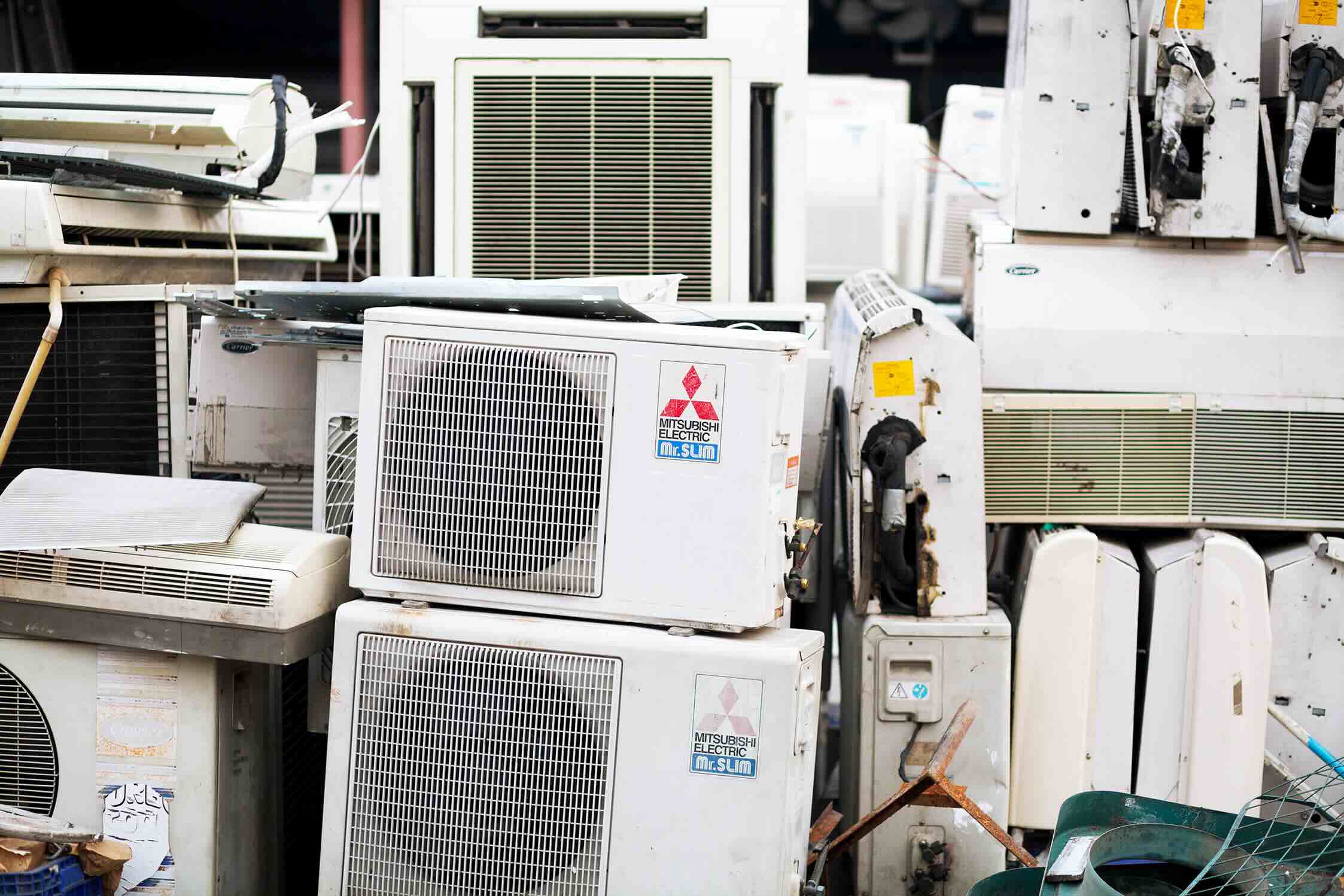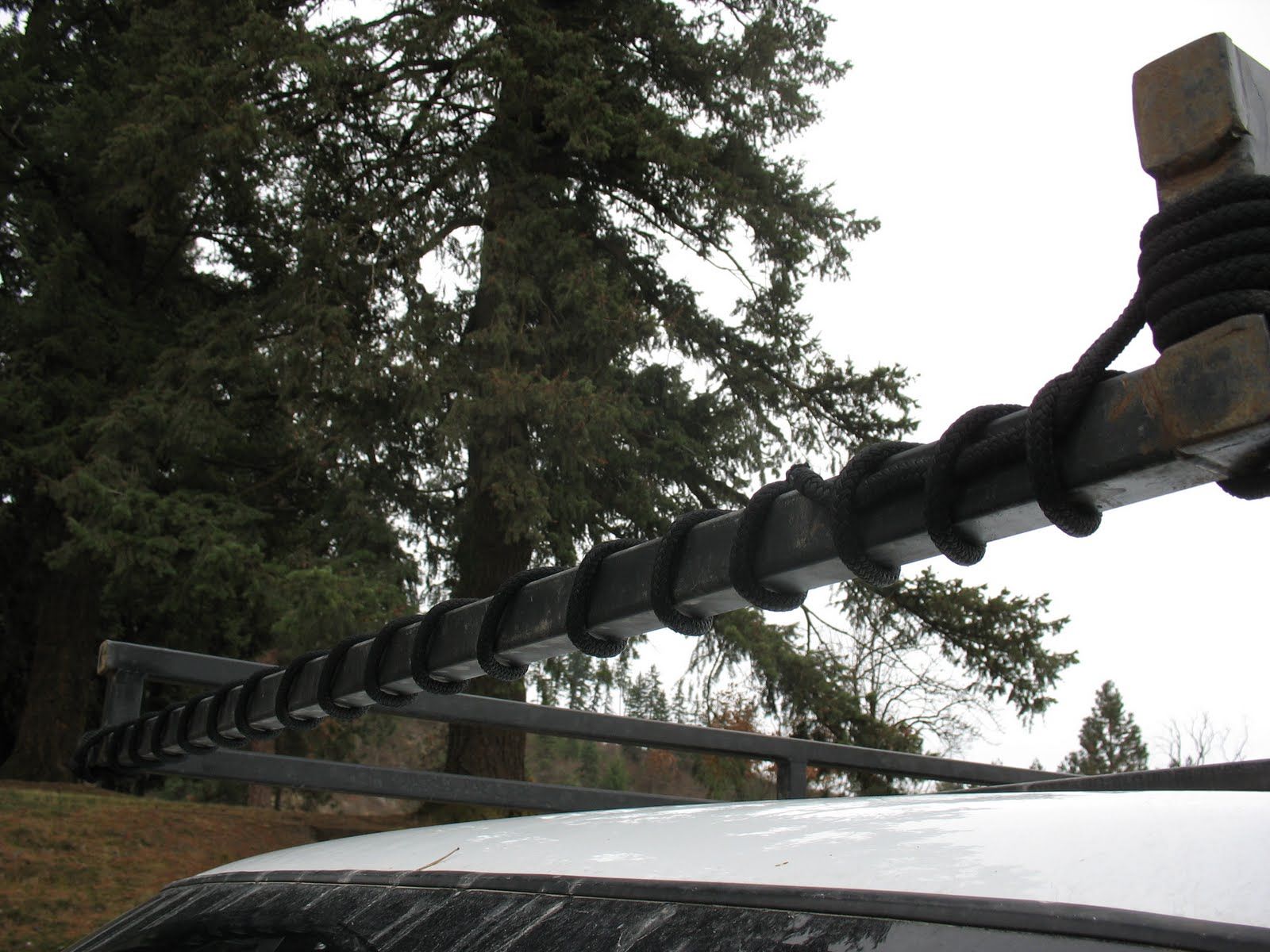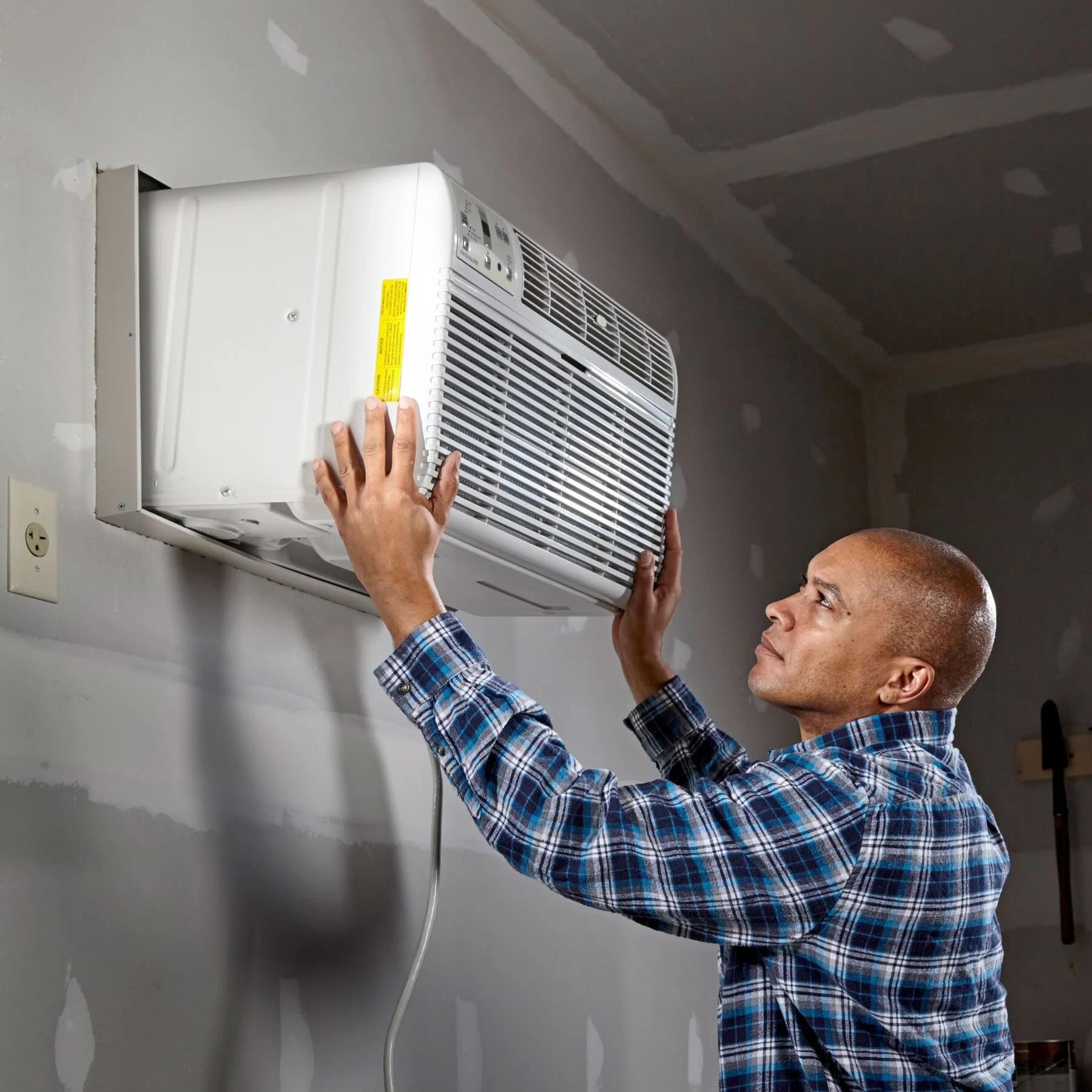Home>Home Maintenance>How To Block Air Conditioner Noise
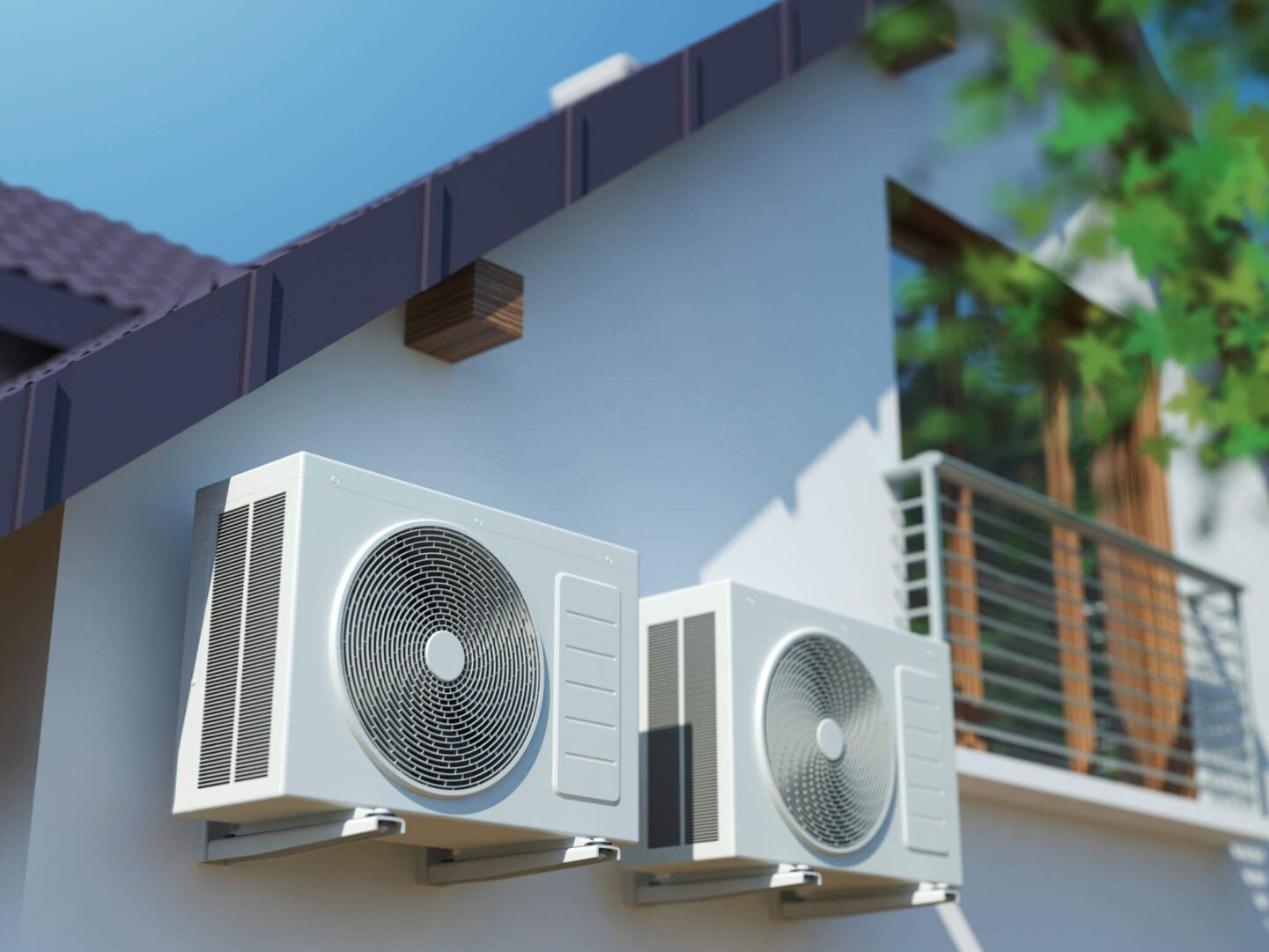

Home Maintenance
How To Block Air Conditioner Noise
Modified: March 7, 2024
Learn how to block air conditioner noise with effective home maintenance techniques. Keep your indoor space peaceful and cool.
(Many of the links in this article redirect to a specific reviewed product. Your purchase of these products through affiliate links helps to generate commission for Storables.com, at no extra cost. Learn more)
Introduction
Welcome to our guide on how to block air conditioner noise! If you’ve ever experienced the intrusive sounds of an air conditioner disrupting your peace and quiet, you know just how frustrating it can be. Whether it’s the constant hum of the outdoor unit or the noisy airflow coming from the vents, air conditioner noise can be a major annoyance. Fortunately, there are several techniques you can implement to reduce or eliminate this unwanted noise and enjoy a more peaceful living environment.
In this comprehensive article, we will explore the various sources of air conditioner noise, understand the impact it can have on our well-being, and provide you with effective methods to block and reduce this noise. By following these tips, you’ll be able to create a more tranquil and comfortable home atmosphere.
So, let’s dive in and discover how to block air conditioner noise!
Key Takeaways:
- Block air conditioner noise by using soundproof curtains, acoustic panels, or a soundproof enclosure. Consider planting trees or installing barrier fences for a natural noise barrier.
- Understanding the sources and impact of air conditioner noise is crucial for choosing the right noise reduction techniques. Implementing these methods can create a quieter and more peaceful living environment.
Read more: How To Reduce Noise From An Air Conditioner
Understanding Air Conditioner Noise
To effectively block air conditioner noise, it’s important to first understand the sources and characteristics of the noise. Air conditioner noise can come from both the outdoor condenser unit and the indoor fan and airflow system.
The outdoor condenser unit is responsible for cooling the refrigerant and circulating it back into the indoor evaporator coil. This unit typically produces a continuous humming sound as the compressor and fan motor operate. The loudness of this noise can vary depending on factors like the size and condition of the unit, as well as the distance between the unit and your living space.
Inside your home, the air conditioner’s indoor fan and airflow system can also contribute to the overall noise level. The movement of air through the ducts, the vibration of the fan motor, and the sound of air flowing out of the vents are common sources of noise. Again, the loudness of these noises can vary depending on the design and condition of the system.
It’s important to note that air conditioner noise can be subjective, as different individuals have varying levels of sensitivity and tolerance to noise. What may seem loud and bothersome to one person may be completely tolerable to another. However, excessive noise from an air conditioner can impact the overall comfort and well-being of individuals and may even cause sleep disruptions and stress.
Now that we have a basic understanding of air conditioner noise, let’s move on to identifying the common sources of this noise in more detail.
Identifying the Common Sources of Air Conditioner Noise
When it comes to blocking air conditioner noise, it’s essential to identify the specific sources of the noise. By understanding where these noises originate, you can effectively target your noise reduction efforts.
Here are some of the common sources of air conditioner noise:
- Outdoor Condenser Unit: The outdoor condenser unit houses the compressor and fan motor, which are the primary components responsible for cooling the refrigerant. The compressor produces a humming noise, while the fan motor creates a whirring noise as it spins. Additionally, rattling or vibrating sounds may occur if the unit is not properly secured or if there are loose components.
- Indoor Fan and Airflow System: Inside your home, the indoor fan and airflow system can generate noise. The fan motor may produce a humming or buzzing sound, especially if it is older or in need of maintenance. The movement of air through the ducts can also create whooshing or rushing noises, particularly if the ductwork is not properly sealed.
- Vibration Noise: Vibrations can occur as a result of the air conditioner’s operation, leading to additional noise. These vibrations can be transmitted through the walls, floors, or nearby objects, amplifying the overall noise level in your living space.
- Ductwork: The ductwork that distributes conditioned air throughout your home can contribute to noise issues. Poorly designed or poorly installed ducts can create whistling or rattling sounds as air flows through them.
By identifying these common sources of air conditioner noise, you can prioritize your efforts and choose the most appropriate noise reduction techniques. In the next section, we will discuss the impact of air conditioner noise and why it’s essential to address this issue.
Assessing the Impact of Air Conditioner Noise
Air conditioner noise may seem like a minor inconvenience, but its impact can extend beyond just annoyance. It can have various effects on our well-being and overall quality of life. Here are some aspects to consider when assessing the impact of air conditioner noise:
- Sleep Disruptions: Excessive noise from an air conditioner can interfere with our ability to fall asleep or stay asleep. The constant humming or vibrating sounds can be particularly disruptive during the nighttime when our environment is typically quieter. Sleep disruptions can lead to fatigue, reduced concentration, and decreased productivity during the day.
- Stress and Irritability: Constant exposure to loud air conditioner noise can trigger stress and irritability. Studies have shown that prolonged exposure to noise can elevate stress hormone levels and increase heart rate and blood pressure. This can have adverse effects on our overall mental and physical well-being.
- Distraction and Reduced Focus: Continuous noise can be distracting and make it challenging to concentrate on tasks or enjoy leisure activities. Whether it’s working from home, studying, or simply relaxing, a noisy air conditioner can hinder our ability to focus and enjoy a peaceful environment.
- Neighboring Disturbance: In some cases, the noise from your air conditioner may not only bother you but also your neighbors. If you live in close proximity to others, it’s essential to be mindful of the noise levels to maintain good relations with your community.
Understanding the potential impact of air conditioner noise highlights the importance of taking steps to mitigate and reduce it. By addressing this issue, you can create a more peaceful and conducive environment for rest, work, and overall well-being. In the next section, we will explore techniques to effectively block air conditioner noise.
Techniques to Block Air Conditioner Noise
When it comes to blocking air conditioner noise, there are several effective techniques you can implement. These methods can help reduce or eliminate the unwanted sounds, allowing you to enjoy a more peaceful living environment.
Here are some techniques to consider:
- Use Soundproof Curtains: Soundproof curtains are thick and dense curtains designed to absorb and dampen noise. These curtains have multiple layers of specialized fabric that can help block and reduce air conditioner noise. Install these curtains near the windows or doors where the noise enters the room, providing an effective barrier against sound transmission.
- Install Acoustic Panels: Acoustic panels are designed to absorb and reduce sound reflections. These panels can be mounted on walls or ceilings near the air conditioner unit to minimize noise reverberation. Acoustic panels come in various sizes, shapes, and materials, allowing you to choose the ones that best fit your home decor.
- Build a Soundproof Enclosure: If the noise from your air conditioner is particularly loud, you may consider building a soundproof enclosure around the outdoor condenser unit. This enclosure can be constructed using soundproof materials, such as composite boards or specialty panels, to provide a barrier between the unit and the surrounding area.
- Plant Trees or Install Barrier Fences: Natural barriers, such as trees or tall plants, can help absorb and block air conditioner noise. Planting dense shrubs or trees near the outdoor unit can act as a barrier and provide additional aesthetic benefits. Alternatively, you can install a barrier fence made of soundproofing materials to minimize noise transmission.
It’s important to note that the effectiveness of these techniques will depend on various factors, including the severity of the noise, the proximity of the noise source, and the characteristics of your living space. It may be necessary to combine multiple approaches or consult with a professional for the best results.
By implementing these techniques, you can significantly reduce the impact of air conditioner noise in your home and create a more serene and enjoyable living environment.
Now that you have a better understanding of how to block air conditioner noise, it’s time to choose the techniques that best suit your needs and turn your home into a quiet oasis. Remember, a peaceful and noise-free living space can greatly enhance your comfort and well-being.
Consider using soundproof curtains or acoustic panels to block air conditioner noise. These materials can help absorb and reduce the sound, creating a quieter environment in your space.
Read more: Car Makes Noise When Air Conditioner Is On
Using Soundproof Curtains
One effective technique for blocking air conditioner noise is to use soundproof curtains. These specialized curtains are designed with thick, dense materials that help absorb and dampen sound waves, reducing the transmission of noise into your living space.
Here are some key points to consider when using soundproof curtains:
- Choose the Right Type: Not all curtains are created equal when it comes to soundproofing. Look for curtains specifically labeled as “soundproof” or “noise-reducing.” These curtains are typically made with multiple layers of thick fabric, such as polyester or velvet, which have excellent sound absorption properties.
- Measure and Install Properly: Measure the width and height of your windows or doors to ensure you purchase curtains that provide proper coverage. It’s important to install the curtains as close to the window or door frame as possible, creating a tight seal to minimize sound leakage. Consider using a double curtain rod system, with a regular curtain and a soundproof curtain, to maximize noise reduction.
- Utilize Floor-to-Ceiling Coverage: For optimal noise-blocking results, choose soundproof curtains that extend from the floor to the ceiling. This ensures that any noise that enters the room through the windows or doors is effectively trapped and absorbed by the curtains.
- Combine with Other Techniques: While soundproof curtains are effective at reducing air conditioner noise, combining them with other techniques can further enhance noise reduction. For example, you can also install acoustic panels on the walls near the windows or doors, creating an additional layer of sound absorption.
- Consider Aesthetics: Soundproof curtains come in a variety of colors and styles, allowing you to choose ones that match your home decor. Whether you prefer a classic or modern look, there are options available that not only provide noise reduction but also enhance the appearance of your living space.
It’s important to note that while soundproof curtains can significantly reduce air conditioner noise, they may not completely eliminate it, especially if the noise is very loud or coming from other sources. However, they can make a noticeable difference and contribute to a more peaceful and comfortable living environment.
Remember to regularly clean and maintain your soundproof curtains to ensure their optimal performance. Vacuuming or gentle spot cleaning can help remove dust and keep the curtains in excellent condition.
By utilizing soundproof curtains and combining them with other noise reduction techniques, you can effectively block air conditioner noise and enjoy a quieter and more serene living space.
Installing Acoustic Panels
Another effective technique for reducing air conditioner noise is to install acoustic panels. These panels are designed to absorb and reduce sound reflections, minimizing the impact of noise in your living space.
Here are some key considerations when installing acoustic panels:
- Identify Noise Hotspots: Take the time to identify the areas in your home that are most affected by air conditioner noise. These areas may include rooms near the outdoor unit, rooms with thin walls or large windows, or spaces where you spend a significant amount of time. By identifying these noise hotspots, you can strategically place acoustic panels to maximize noise reduction.
- Select the Right Panels: Acoustic panels come in various shapes, sizes, and materials. Choose panels with high sound absorption ratings (often expressed as the Noise Reduction Coefficient or NRC), as these will be most effective at reducing air conditioner noise. Panels made of foam, fabric-wrapped fiberglass, or specialized acoustic materials are common options.
- Strategic Installation: For maximum effectiveness, install the acoustic panels on the walls or ceilings near the air conditioner unit. Place panels in locations where noise has a direct path into the room or where it reflects off hard surfaces. Consider both the placement of panels near the noise source and the room’s overall acoustics to achieve the best noise reduction results.
- Consistent Coverage: To achieve optimal noise reduction, ensure that the acoustic panels provide consistent coverage across the walls or ceilings in the targeted area. Gaps or uneven placement may allow sound to penetrate through, reducing the effectiveness of the panels.
- Combine with Other Techniques: While acoustic panels can significantly reduce air conditioner noise, combining them with other noise reduction techniques can further enhance the results. For example, using soundproof curtains on windows and doors in conjunction with acoustic panels can create a multi-layered noise barrier.
It’s worth noting that acoustic panels not only reduce noise but also improve the overall acoustics of a room by minimizing sound reflections and echoes. This can enhance the clarity of speech and music, creating a more pleasant auditory environment.
When choosing and installing acoustic panels, consider the aesthetics of your space. Many panels come in different colors and designs, allowing you to select options that complement your home decor.
By installing acoustic panels strategically and combining them with other noise reduction techniques, you can effectively block air conditioner noise and create a more comfortable and peaceful living environment.
Building a Soundproof Enclosure
If the noise from your air conditioner is particularly loud and persistent, you may consider building a soundproof enclosure around the outdoor condenser unit. This enclosure acts as a physical barrier, effectively reducing the transmission of noise into your living space.
Here are some important steps to follow when building a soundproof enclosure for your air conditioner:
- Plan the Design: Determine the dimensions and layout of the enclosure based on the size and location of your outdoor condenser unit. Consider leaving enough space around the unit for proper ventilation and maintenance access.
- Select Soundproof Materials: Choose acoustic materials that have excellent sound insulation properties. Composite boards, mass-loaded vinyl, and specialty soundproof panels are commonly used options. These materials help absorb and block noise, preventing it from escaping the enclosure.
- Build a Sturdy Frame: Construct a sturdy frame using materials such as wood or metal to form the structure of the enclosure. Ensure that it is strong enough to support the weight of the soundproof materials and withstand environmental conditions.
- Isolate Vibrations: Incorporate vibration isolation techniques to further reduce noise transmission. Use rubber or neoprene mounts or padding to isolate the outdoor unit from the frame and prevent vibrations from traveling through the enclosure.
- Seal the Enclosure: Pay close attention to sealing any gaps, cracks, or openings in the enclosure. Use caulk or weatherstripping to create a tight seal and prevent sound leakage. Install acoustic seals on doors or access panels to maintain soundproof integrity.
- Consider Ventilation: Ensure that the enclosure allows sufficient airflow to prevent heat buildup and maintain the proper functioning of the outdoor unit. Incorporate vents or louvers in the design, but be sure to choose ones that minimize noise transmission.
- Regular Maintenance: Regularly inspect and maintain the soundproof enclosure to ensure it remains effective. Check for any damage or wear and tear, and repair or replace any compromised materials as needed.
Building a soundproof enclosure for your air conditioner requires some DIY skills and knowledge of construction techniques. It may also be beneficial to consult with a professional to ensure proper design and implementation.
Remember to check with local regulations or homeowner’s association guidelines before constructing a soundproof enclosure, as there may be specific requirements or limitations.
By building a soundproof enclosure, you can significantly reduce the noise emitted by the outdoor condenser unit, allowing you to enjoy a quieter and more peaceful living environment.
Planting Trees or Installing Barrier Fences
Another effective technique to block air conditioner noise is to utilize natural barriers such as trees or barrier fences. These options not only provide visual appeal but also help absorb and reduce sound waves, creating a quieter living environment.
Here are some key points to consider when using trees or barrier fences to block air conditioner noise:
- Identify Strategic Locations: Determine the areas in your outdoor space where the air conditioner noise is most bothersome. This could be near your patio, bedroom windows, or any other area where you spend a significant amount of time. Identifying these locations will help you plan the placement of trees or barrier fences for maximum noise reduction.
- Select the Right Trees: Choose trees that are dense and have the ability to absorb sound effectively. Evergreen trees, such as pine, spruce, or cedar, are great options as they provide year-round coverage. Look for varieties that have thick foliage and a branching structure that helps to block noise from different angles.
- Planting Distance and Arrangement: Determine the ideal planting distance from your air conditioner unit for optimal noise reduction. Keep in mind factors such as the size and growth rate of the trees to ensure they do not interfere with the unit’s operation or maintenance. Planting a few rows of trees in a staggered pattern can create a more effective noise barrier.
- Installation of Barrier Fences: If planting trees is not a feasible option, you can install barrier fences made of soundproofing materials. These fences are designed with features that absorb and block noise. Choose fences that are tall enough to block direct sound paths and opt for materials that have sound-dampening properties.
- Combining Techniques: For optimal results, consider combining the use of trees and barrier fences. This combination can create a multi-layered barrier that effectively blocks and absorbs air conditioner noise.
- Maintenance and Upkeep: Regularly maintain and prune the trees to ensure their health and effectiveness as a noise barrier. Trim any dead branches or foliage that may hinder their ability to block sound waves.
It’s important to note that trees and barrier fences may not completely eliminate air conditioner noise, especially if it is particularly loud or coming from other sources. However, they can significantly reduce the noise level and create a more peaceful outdoor living space.
Before planting trees or installing barrier fences, check local regulations or homeowner’s association guidelines to ensure compliance with any rules or restrictions.
By strategically planting trees or installing barrier fences, you can effectively block air conditioner noise, enhance the aesthetics of your outdoor space, and create a quieter and more tranquil atmosphere.
Conclusion
Dealing with air conditioner noise can be a nuisance, but with the right techniques, you can significantly reduce or even block these unwanted sounds. Throughout this guide, we’ve explored various methods to help you create a more peaceful and comfortable living environment.
We began by understanding the sources and characteristics of air conditioner noise, identifying common sources such as the outdoor condenser unit, indoor fan and airflow system, vibrations, and ductwork. Understanding where the noise is coming from is crucial in determining the most effective noise reduction techniques to implement.
We then discussed the impact of air conditioner noise on our well-being, including sleep disruptions, stress, distraction, and potential disturbances to neighboring properties. Recognizing the negative effects of noise highlights the importance of addressing the issue for our overall comfort and quality of life.
Next, we explored different techniques to block air conditioner noise. These techniques include using soundproof curtains, installing acoustic panels, building a soundproof enclosure, and planting trees or installing barrier fences. Each approach offers its own advantages and effectiveness, and you can choose the ones that best suit your specific needs and circumstances.
Soundproof curtains are an excellent option for reducing noise transmission through windows and doors, while acoustic panels can absorb sound reflections and echo inside a room. Building a soundproof enclosure around the outdoor condenser unit can minimize noise emissions, and planting trees or installing barrier fences creates a natural barrier that absorbs sound waves.
By implementing these techniques, you can create a quieter and more serene living environment, improving your sleep quality, reducing stress levels, and enhancing your overall well-being. Remember to combine techniques and adjust them based on your unique situation to achieve the best results.
In conclusion, blocking air conditioner noise is not only about minimizing the annoyance of loud sounds but also about creating a peaceful and comfortable space where you can relax and unwind. With the right techniques and a bit of effort, you can enjoy a quieter home and enjoy the benefits of a more tranquil living environment.
Frequently Asked Questions about How To Block Air Conditioner Noise
Was this page helpful?
At Storables.com, we guarantee accurate and reliable information. Our content, validated by Expert Board Contributors, is crafted following stringent Editorial Policies. We're committed to providing you with well-researched, expert-backed insights for all your informational needs.



